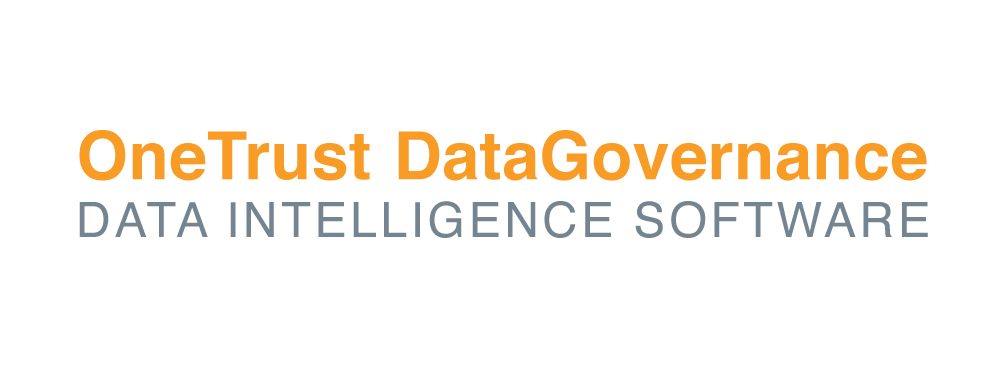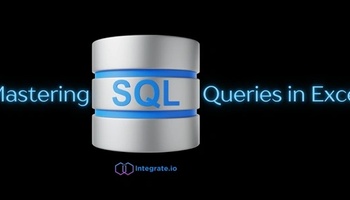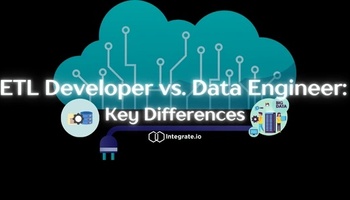- 1. Integrate.io
- 2. Informatica
- 3. IBM Watson Knowledge Catalog
- 4. Collibra
- 5. Alation Data Governance App
- 6. Apache Atlas
- 7. erwin Data Intelligence
- 8. Oracle Enterprise Metadata Management
- 9. OneTrust Data Governance Cloud
- 10. SAP Master Data Governance
- 11. Riskonnect
- How Integrate.io Helps With Data Governance
Article Summary
Five things you need to know about data governance tools:
- Data governance is more important than ever due to legislation like GDPR, CCPA, and HIPAA.
- Data governance software tools help you comply with legislation and industry frameworks and improve how your enterprise handles different data types.
- The data governance tools on this list include features such as ELTG, data cataloging, data profiling, and compliance audit readiness.
- Integrate.io is a data warehouse integration platform that improves data governance in your organization.
- Use Integrate.io to safeguard sensitive and confidential information when moving data between a source and a supported target system.
Data governance refers to the methodologies, procedures, and standards that control how your organization processes, manages, stores, and shares data. Legislation in your jurisdiction or industry — such as General Data Protection Regulation (GDPR), California Consumer Privacy Act (CCPA), and Health Insurance Portability and Accountability Act (HIPAA) — might require you to safeguard all the data that flows through your enterprise. Not adhering to these legislative frameworks could result in expensive fines from the government.
The latest data governance tools help you maintain data security and quality and comply with the law. Learn about the best platforms for data governance below and discover how Integrate.io can help you avoid risk and liability when moving data between different locations.
1. Integrate.io

Integrate.io is one of the best data governance tools when moving data from a source to a supported target system for analysis. The new Extract, Transform, Load (ETL) platform performs high-speed data transformations that encrypt, mask, or eliminate sensitive data such as Personally Identifiable Information (PII) and Protected Health Information (PHI) before moving data to a destination, helping you comply with data governance legislation like GDPR and CCPA. This process — which Integrate.io calls Extract, Transform, Load for Data Governance, or ETLG — builds on traditional ETL, improving your internal data governance policy and removing risk and liability.
Integrate.io's ETLG capabilities won't slow down data ingestion, so you can benefit from enhanced data governance without impacting preload and post-load ETL transformations. You can still perform high-speed data integration like with traditional ETL workflows. For more complicated data projects, Integrate.io lets you execute lightweight preload transformations that meet internal and external data governance requirements and save "heavier" transformations for later.
Aside from ETLG, Integrate.io improves data governance by applying industry standards and adhering to regulations across all of its processes. Integrate.io:
- Is certified as SOC-compliant
- Adheres to GDPR as a responsible and secure data processor
- Complies with HIPAA when protecting PHI
- Adheres to CCPA as a responsible and secure data processor
Integrate.io has a simple philosophy: to simplify data integration. The platform comes with low-code/no-code native connectors that let you move data to a supported target system while adhering to data governance policies and legislation. Integrate.io pricing is tailored exactly to each client's needs and requirements with a usage-based component couple with features and functionality. Clients choose which level of platform usage they will require and then which features and functionality to create a custom plan to fit their use case. Try Integrate.io yourself with a 14-day trial!
Read more: ETLG: ETL for Data Governance and Better Security
2. Informatica
Are you looking for data governance tools? Informatica is an ELT-based data integration tool that allows you to comply with data governance frameworks and better manage sensitive data. One way it does this is by scanning metadata catalogs, business intelligence (BI) tools, and cloud platforms to create a data catalog — a critical component of any data governance strategy. Your data catalog will identify your organization's data assets and their location, helping you discover data sets for more successful governance.
Informatica can also improve data governance by optimizing master data management and metadata management. That allows you to coordinate data across your organization and ensure data sets comply with the relevant frameworks. You can also use Informatica to improve the accuracy, uniformity, and stewardship of all the data you process, manage, store, and share.
Other Informatica features for data governance include data policy management and automated data lineage tracing for impact analysis.
3. IBM Watson Knowledge Catalog

IBM Watson Knowledge Catalog is a data cataloging tool that lets you improve governance when using IBM technology products such as Db2. It utilizes machine learning algorithms to govern metadata and data sets, helping you adhere to data governance frameworks and avoid fines for noncompliance.
One of the best features of Watson Knowledge Catalog is powerful data visualizations that generate insights into data cataloging processes. You can view the latest graphs, charts, and heat maps to view the location of your most important data assets. Share these insights with data engineers, data scientists, and other professionals who access your organization's data.
Other data governance features include automated data lineage and compliance audit readiness with PCI and PHI. You can also access data stewards, business analysts, and other professionals to guide your data governance strategies and ensure data in your organization remains consistent and compliant with the law.
4. Collibra

Collibra is one of the best data governance tools because of its data ownership and stewardship features. You can view data assets on the platform and ensure they are useable, accessible, and secure. Collibra also excels when it comes to data cataloging. It uses machine learning to search your data sources and creates a data catalog that lists all the data assets in your organization. That helps you identify the most appropriate data for your projects.
Collibra's metadata management feature lets you extract and transfer metadata from customer relationship management (CRM) and enterprise resource planning (ERP) systems. You can view data governance insights on charts, graphs, and heat maps and learn more about privacy and compliance when processing and managing data sets.
Other Collibra features include support for a business glossary, data policy management, and compliance with GDPR, BCBS239, and other data governance frameworks.
Read more: GDPR: All You Need To Know And Do
5. Alation Data Governance App

Alation Data Governance App is a companion tool for Alation Data Catalog. Launched in 2021, the tool helps you comply with data governance frameworks and improve the reliability and security of data sets. You can create data governance workflows without any coding or data engineering experience.
So what makes Alation Data Governance App one of the best data governance tools? Its data stewardship feature automates data curation through AI and machine learning, helping you oversee and manage data sets and ensure data is safe and trusted. Other features include dashboards and metrics that provide high-quality insights into your data governance strategies.
6. Apache Atlas
Apache Atlas is one of the few open-source data governance tools on the market. Despite its open-source nature, Atlas' developers regularly update the tool with the latest security patches and features. While Atlas isn't as feature-heavy as the other data governance tools on this list, it allows you to perform basic governance tasks when using Hadoop clusters. That can help you identify the most appropriate data for Hadoop and guarantee its consistency and accuracy.
Another Atlas feature is the ability to catalog and govern different data sets and automate data lineage. You can improve data masking and access control management by integrating the tool with Apache Ranger.
7. erwin Data Intelligence

Data governance tools like erwin Data Intelligence can help you manage the integrity, quality, and security of data in your enterprise. Developed by Quest Software, erwin Data Intelligence offers different data catalog, data quality, and data literacy products that adhere to governance frameworks and let you create more effective internal data management workflows.
One of the best things about erwin is its ability to create role-based views based on different users in your organization. You can view how these users manage and process data and ensure the right people have access to your most confidential and sensitive information. Another valuable feature is metadata harvesting and cataloging, letting you generate more value from your metadata assets. Then there are erwin's data profiling capabilities, which allow you to create data summaries that benefit your team.
Other erwin data governance features include data flow mapping, data lineage documentation, and data quality assessments.
8. Oracle Enterprise Metadata Management

Oracle Enterprise Metadata Management (OEMM) is one of the top data governance tools for cataloging data. It creates data catalogs that help you identify data assets in your organization and remove the risks associated with processing and sharing sensitive data. You can catalog data from data warehouses, relational databases, business intelligence platforms, and Hadoop clusters in Oracle systems and third-party tools.
Another feature of OEMM is enhanced data stewardship. You can tag metadata and add comments about data, making it easier to chronicle the information in your enterprise. A search feature lets you locate the metadata you need within seconds. You can also build business glossaries in a few simple steps.
OEMM is also renowned for its smart algorithms that show you the journey of metadata as it moves through your systems. That gives you greater ownership and control over your metadata and helps you comply with data governance frameworks. You can also access dashboards and reports about your data management workflows and identify new opportunities for handling data.
9. OneTrust Data Governance Cloud

OneTrust Data Governance Cloud is a data governance tool that lets you create policies that protect sensitive and confidential data in your enterprise. It classifies data to meet legislative requirements, helping you avoid expensive government fines for noncompliance.
One of OneTrust's best features is its management console, which lets you view your data governance workflows in a single location. Dashboards and reports help you identify potentially sensitive data that might result in data governance breaches. OneTrust can also encrypt and mask confidential data, providing peace of mind if your information ends up in the wrong hands.
Other features include access controls, data portability, and data discovery for structured, unstructured, and semi-structured data sets.
10. SAP Master Data Governance

SAP Master Data Governance can improve master data management by collecting master data from different systems and placing it in a centralized location. That lets you view your master data through a single pane of glass rather than relying on several systems. By using this platform, you can improve governance and ensure master data is available, uniform, and secure.
SAP Master Data Governance is one of the top data governance tools because of its ease of use. Despite being feature-heavy, the tool doesn't require a steep learning curve, making it a good choice for smaller businesses that want to improve data governance and adhere to legislation when processing data.
Other features include preformatted data models that standardize and organize data sets in your organization. You can also receive notifications about invalid data sets that might impact data management and analysis.
Read more: Protecting Personal Data: GDPR, CCPA, and the Role of ETL
11. Riskonnect

Riskonnect is a risk management software tool that lets you comply with internal and external data governance regulations. Primarily used for compliance, this platform helps you review data in your organization that might pose a security risk or breach data protection laws. You can analyze data on a single screen, making Riskonnect a useful tool for smaller businesses wanting to optimize data governance.
One feature of Riskonnect is the ability to exchange information about data governance with auditors, compliance experts, and other professionals. By providing a single communication source, this platform can improve collaboration when it comes to fulfilling governance workflows. Use this platform to analyze any potential risks that might result in data breaches and jeopardize your organization's reputation. You can also centralize contracts and credentials on the system, making it easier to manage governance.
Other features of Riskonnect include risk notifications and manual process automation.
How Integrate.io Helps With Data Governance
Integrate.io is a pioneer of the ETLG data integration process, helping you execute lightweight and high-speed data transformations that encrypt, mask, or remove confidential and sensitive data like PHI and PII. Integrate.io lets you facilitate ETLG without writing lots of code or building complex big data pipelines. That helps you adhere to data governance frameworks like GDPR, CCPA, and HIPAA without breaking a sweat. You can remove risk and liability when managing data and focus on other tasks in your business.
Here's how the ETLG process works:
- Integrate.io extracts data from a source such as a database, CRM system, or SaaS tool and places it into a staging area.
- Integrate.io then carries out lightweight data transformations on that data to encrypt or remove sensitive and confidential information, instantly improving data governance. The platform also formats the data for better data management.
- Integrate.io loads the transformed data into a supported target destination, such as a data warehouse.
If you require more complicated transformations at this stage, you can complete the rest of the data integration process in the target system.
Integrate.io is not only capable of ETLG but other data integration processes:
ETL
Integrate.io executes traditional ETL by extracting data from a source, transforming it into the correct format for analysis, and then loading it to a supported target system. The platform's low-code/no-code connectors let you carry out this process without lots of programming and data engineering experience. At this point, you can run data through BI tools like Tableau and Looker and generate incredible insights about your organizational workflows.
ELT
Integrate.io extracts data from a source, loads it to a target system, and transforms data into the correct format for analysis within that system. ELT is better suited than ETL for larger structured and unstructured data sets.
Reverse ETL
Integrate.io's Reverse ETL capabilities help you move data from a target system to an operational system of record. (For example, you can transfer data from a data warehouse to Salesforce). That allows team members to analyze data sets in systems they are familiar with.
Change Data Capture (CDC)
Integrate.io is capable of performing super-fast CDC. This process monitors changes made to data within a database in real-time or near real-time. That helps you analyze database changes faster and get more value from data.
During most of these data integration processes, Integrate.io can remove inaccuracies and inconsistencies in data, helping you achieve your data governance objectives.
As well as its data governance capabilities, Integrate.io is one of the best data management tools. By moving data to a supported target system, you can generate a single source of truth for all the data in your organization and remove data silos.
Other Integrate.io features include:
- A powerful REST API
- Simple workflow creation
- Salesforce-to-Salesforce integrations
- World-class customer support
Integrate.io is one of the best data governance tools for moving data from disparate sources to a supported target location. Try Integrate.io with a 14-day trial, and learn more. After signing up for your trial, schedule your ETL trial meeting with a data integration expert.










